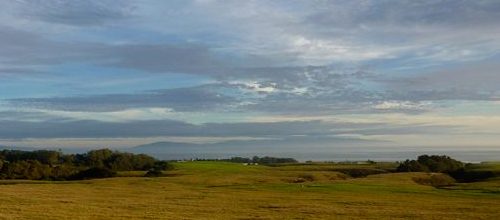About the Graduate Program
History of Consciousness has strong cooperative relations with associated faculty from other campus programs, scholars who offer seminars and participate in advising, qualifying exams, and thesis committees for the department. Within the limits of seminar size and faculty time, cross-disciplinary work in graduate courses offered in other departments is encouraged. The formal list of associated faculty is a non-exhaustive indication of advising possibilities beyond the program's core faculty. Campus research organizations such as the Center for Cultural Studies, The Humanities Institute, and the Chicano/Latino Research Center also provide venues for collaborative work.
Since the curriculum concentrates on methodological and theoretical issues and is concerned with the integration of disciplines, candidates for admission are expected to have a relatively clear idea of the project they wish to pursue. Experience of advanced work in one or more fields is preferred but not required.
Although History of Consciousness does not have formal tracks, it does emphasize a variety of topics and approaches in its seminars and research pursuits. Reflecting a serious concern for social, historical, and cultural theories, these areas of research can be most succinctly identified as studies at the intersection of race, sexuality, and gender; global capitalism and cultural process; psychoanalytic and semiotic theories of the image; science and technology studies; theories and histories of religion; and social movements. Seminars are regularly offered in these and other areas of ongoing faculty research.

